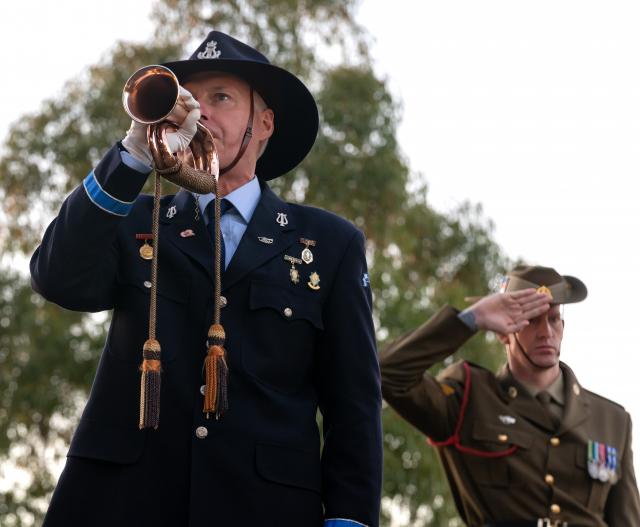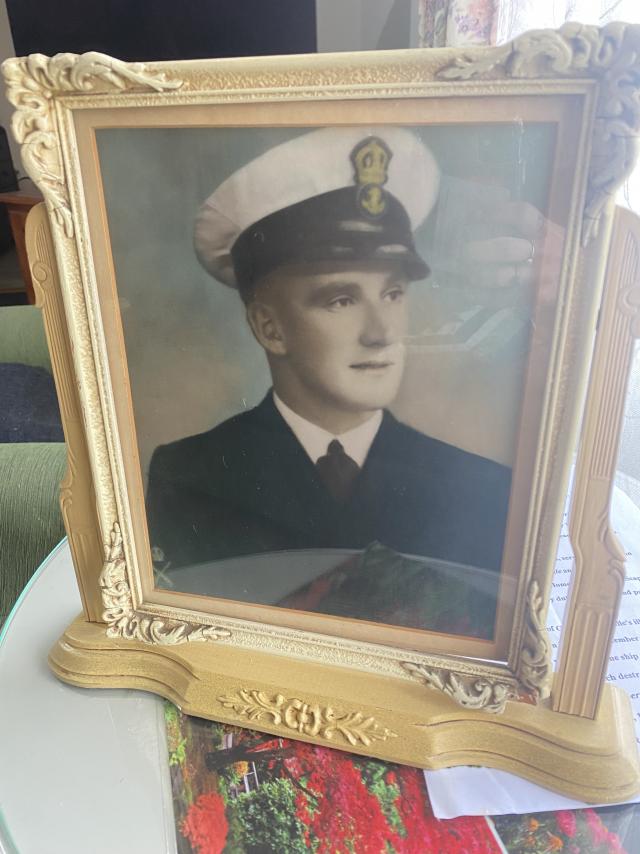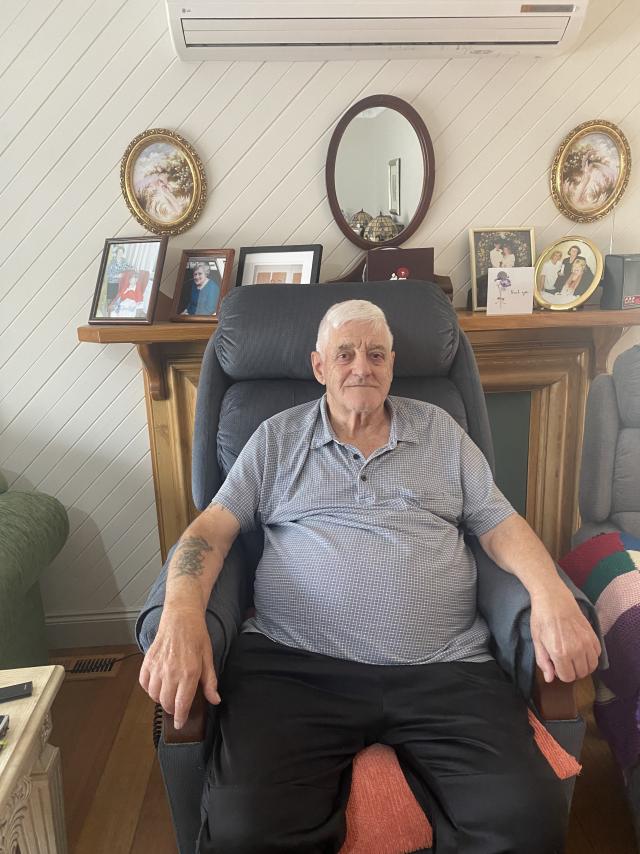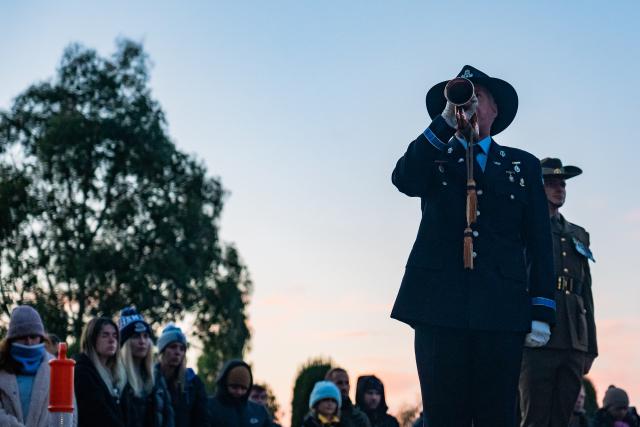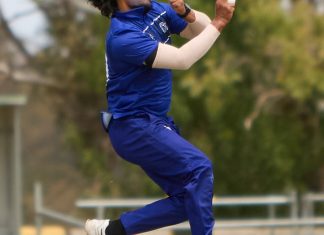On May 8, 1945, Nazi forces in Germany surrendered, ending Adolf Hitler’s reign, and sparking the end of the six-year conflict. Seventy-eight years on, May 8 or 9 marks a Time of Remembrance for those Who Lost Their Lives during the World War II. Zoe Moffatt talks to western suburbs locals about the importance of remembering those who served.
Sitting in an armchair, surrounded by family photos in his Melton South home, James Coghlan opens up about his time in the Vietnam War and growing up without his father.
“I was born five months after my father died [in World War II] in August ,1942,” Mr Coghlan said.
“[His death] shattered me, not so much as a young boy growing up, but it shattered me in later life.
“I’ve always wanted a father I could look up to and respect … but I didn’t have one.”
Mr Coghlan said his father, James Haining was born in Williamstown in 1913 and joined the navy when he was 18 years old.
Mr Haining was later posted to HMAS Canberra which sank in 1942, killing 84 men.
Looking back on his father’s story and his own experience, Mr Coghlan said it is important to have days dedicated to remembering veterans from all wars, not just the world wars.
“I have found that over the years they really haven’t accepted what we did [in Vietnam], no one accepted us when we came home,” he said.
“I remember in my first RSL … I was introduced and I heard one of the boys say in the background ‘why don’t you go back and fight a war’.
“[Those words] shattered me, I wanted to walk out of that RSL.
“A lot of us got that sort of reaction when we first came home … they didn’t recognise Vietnam as a war.”
Mr Coghlan said he feels this attitude has changed overtime and the army, and other services, are starting to understand the impacts of service life.
“We’re finding how … all services are starting to wake up to themselves. The training the younger veterans are getting is 1000 times harder than what we had.
“But they’re coming out and they can’t accept civilian life.”
Mr Coghlan said older veterans such as himself can connect with younger veterans through organisations like RSLs, and days of remembrance are important for everyone to connect.
Woodend resident Gary Andison who comes from a service family, with his father and grandfather serving in WWII, said he agrees that it is important to have days to remember.
“I think it’s important to keep the memory alive for those people, men and women for their achievements in helping to bring peace,” Mr Andison said.
“I used to think as a kid when I was really young, dad went to war, grandad went to war, so it would be my turn to go to war.
“I thought that was the norm, and then as I got older and understood things and that it wasn’t going to be the case.”
Mr Andison said that he was very relieved when he realised he was not going to have to fight in a war.
“I was probably very relieved … because I don’t think I was looking forward to it,” he said.
“We’re fortunate enough in the sense that [going to war] isn’t an automatic call up … now you volunteer to join the services or you join it as a career.”
Mr Andison said his father did not talk about his time spent at war, except for a story he shared about his time in Papua New Guinea.
“Grandad died when I was probably about five or six so I didn’t know about [his time in WWII], and dad never [really] talked about it.”
“He [did] praise the fuzzy wuzzies, he had a lot of time [for them]… and the effort and help they gave the allies during the war.”
After spending 11 months serving in Papua New Guinea, Mr Andison’s father, Allan Andison Junior was discharged from the army and returned to his home town of Woodend to work as a mechanic.
Mr Andison’s grandfather, Allan Andison Senior, had to return from WWII in 1943 to the repatriation hospital in Heidelberg and spent the rest of the war based at Victoria Barracks Melbourne and RAAF Laverton.
Through this family history, Mr Andison said he got involved with the RSL and looked to what he could do to assist them.
“Back then in 1981 … the Woodend RSL approached me … [to ask] whether they could tape me playing the Last Post so they could play it at the service.”
Mr Andison said he was then asked if he could play the song live, and has now been playing the last post for 40 years.
He said he feels a connection to his father and grandfather every year he gets up at dawn to play the song and honour the veterans.
“[I feel a connection] for all the other people that served [as well], whether it be in the older wars or the newer wars.”


